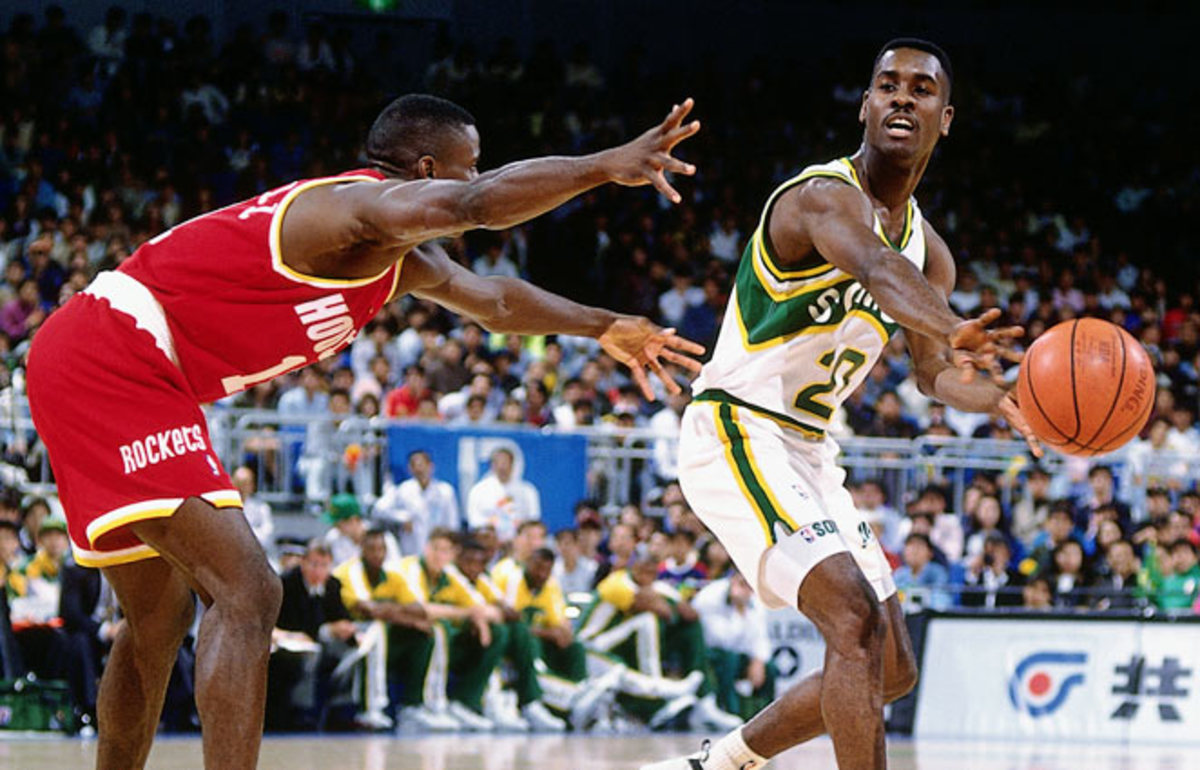Return of Sonics good news for everyone -- except Sacramento


Within a year the Seattle SuperSonics will be back home in Key Arena, their team president may be Phil Jackson or some other heavy hitter and who knows where DeMarcus Cousins will be playing. And one more thing: The abandoned city of Sacramento will be pursuing plans for a new arena to lure the NBA back to town.
The lesson of Chris Hansen's purchase of controlling interest of the Kings, on behalf of his native Seattle, is that a pro sports franchise is appreciated more than ever when it's gone. Sacramento should draw some courage from the experiences of Seattle, which was unable to agree on plans for a new arena before the Sonics were swept off to Oklahoma City in 2008 by new owner Clay Bennett.
It was after the Sonics were gone and there appeared to be little hope for an NBA team's returning to Seattle that Hansen, a San Francisco-based investor who had grown up cheering for the Sonics, came across property that could be used for a new arena. He then came up with a plan to build a state-of-the-art gym without bleeding the taxpayers, and he was able to sell the new plan rather easily to local and state government. His successes were nothing like the failures and frustrations experienced by his predecessors in their doomed attempts to keep the Sonics in Seattle. You don't know what you had until you try harder than ever to get it back.
The problem for Sacramento, of course, is that it isn't a large market of Seattle's standing. While fellow owners tend to rubber-stamp the transfer of franchises from one city to another, they'll actually be happy in this case because the move to Seattle reverses a negative trend in which teams have failed to move on to appreciably larger markets -- from Charlotte to New Orleans, from Vancouver to Memphis and from Seattle to Oklahoma City.
[Photo Gallery: Classic pictures of the Seattle SuperSonics]
The rest of the league will appreciate Seattle's opportunities in this new era of increased revenue sharing. If the new Sonics do well, then every team will do better, one way or another. The premise of revenue sharing figures to make it harder for a small market like Sacramento to work its way back into the league.
This announcement changes everything for the Kings. The Maloofs, who enjoyed enormous success in the early years of their ownership, are now selling an NBA franchise for the second and likely final time (having previously owned and sold the Rockets, which they also regretted at the time). General manager Geoff Petrie is unlikely to have much to do leading up to the trade deadline next month because the new owners aren't going to want him to deal their assets. Cousins, the Kings' troubled center, may do everything in his power to persuade the new owners to not trade him, now that he suddenly has the chance to play for a new organization in a top market. He and his teammates will spend the rest of the season auditioning for the next team president and GM, or for the leadership of another team, because there is no way that this dysfunctional roster will remain intact in Seattle next season.
The reconstituted Sonics will be one of the rare franchises to enter the NBA with a built-in rival, and believe me when I say the Portland Trail Blazers will be happy to have them back. The Blazers accumulate more air miles per season than any team in the league, and now they'll be granted a short round trip to Seattle twice per year.
The most interesting impact will be felt in Seattle itself, where Hansen promises to be a highly popular owner. One crucial reason he was able to win over legislators and make ground-breaking deals is because he is a good listener. He is known for embracing all points of view, and it's a testament to his engaging personality that people in Seattle rallied around his plan.
Once the NBA has approved his ownership and the team is on its way back into Key Arena for two or three interim seasons, what does he do with his newfound powers? Does he entrust the future of the Sonics to Jackson? Just as it has been for the Nets, Jackson has to be the name at the top of the list for any franchise with championship ambitions. He has a fundamental view of the basketball world that has prevailed for the last two decades. But he is also a coach who has never been an executive, and the question becomes whether he can exert his views without (1) being on the court himself for practices and games, and (2) Michael Jordan or Shaquille O'Neal or Kobe Bryant.
All we know, sadly, is that the Kings are dead (long live the Kings' hopes of returning in some form to Sacramento someday) and, more promisingly, that Seattle has come back to life. The rest of the questions are going to take care of themselves.
